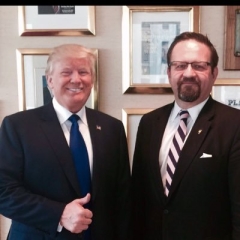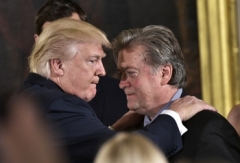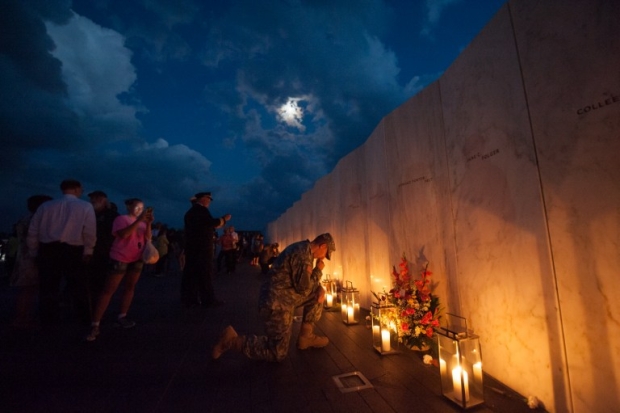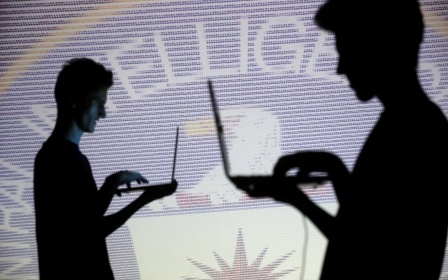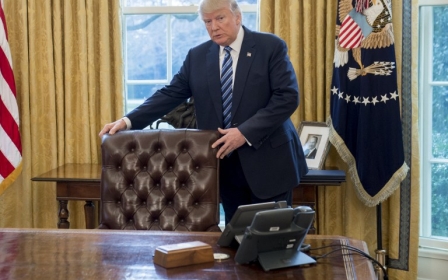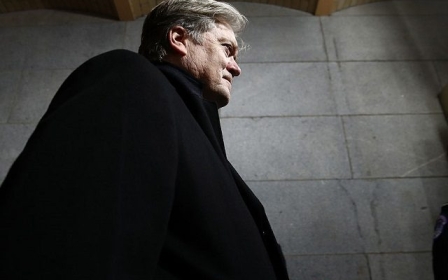Meet Trump's new counter-terrorism czar. He's an anti-Muslim extremist
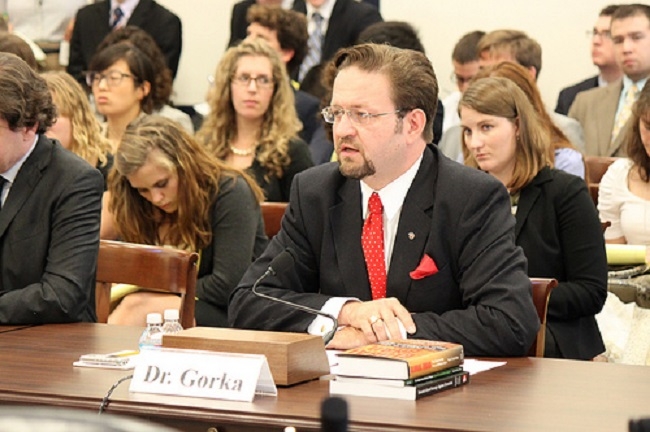
Donald Trump has assembled the most farcical cabinet and inner circle in US presidential history. It would be comical if the consequences of such extraordinary malfeasance weren’t so deadly, nor threatened the very existence of the entire universe as we know it.
'These kinds of writers are usually relegated to the fringes of academia. Sadly, this guy is in the White House'
- Amarnath Amarasingam, senior research fellow at the Institute for Strategic Dialogue
Trump’s choice to head the Environmental Protection Agency is a big oil-funded climate change denier; his education secretary thinks teachers need guns to stave off attacks from bears. Yes, bears. His housing secretary is a celebrity brain surgeon who has never held a job in a bureaucratic organisation, let alone run one. Trump’s secretary of state has no experience in international diplomacy, and the list goes on and on.
The only way the White House of the 45th US president could be a bigger joke is if Chris Christie, as one comic wryly observed, were appointed secretary of health and fitness.
Sadly, that’s not where the joke ends. Enter the clown.
Sebastian Gorka has been appointed deputy assistant to President Trump, reporting to Stephen Bannon, White House chief strategist and owner of the Islamophobic, anti-Semitic, and xenophobic online magazine Brietbart News.
Trump effect: CIA 'terrorist hunters' to quit in opposition to president
A better way to define Gorka’s brief, however, would be to describe the late 40-something British-born expatriate as Trump’s terrorism czar, which, in turn, becomes the punchline to this very unfunny comedy.
A running joke
Gorka is a running joke among terrorism academics and counterterrorism officials. He has scoffed at contributing peer-reviewed research to the field and would appear to refuse to accept empirical findings from the hundreds of scholars and counter-terrorism practitioners who have contributed to what has become a vast body of academic literature on terrorism and violent extremism.
Gorka believes terrorism is rooted in Islam, positing that the Quran, Islam’s holy book, is the source of violent radicalisation. Now, let’s be clear: no credentialed terrorism scholar or counterterrorism practitioner anywhere holds stock in this demented view. Literally, hundreds of quantitative and qualitative analysis of violent radicalisation, alongside a trove of studies commissioned by law enforcement agencies, military academies, universities, and everything else in between – have strongly denied Islamic scripture acts as a dominant driver for radicalisation.
Steven Bannon is preparing Trump for a holy war. No, really
“While it may surprise some, evidence is strong that religion is not the primary motivator for joining violent extremists like ISIS. In fact, research on the characteristics of violent extremists suggests that many are religious novices or converts,” notes a 2015 study in Behavioral Science and Policy.
There is no single pathway to violent radicalisation, nor is there a terrorist gene, studies show an array of socio-psycho push/pull factors often converge to make IS propaganda appealing to socio-economic vulnerable communities. Anyway, that’s what the research shows - research that has been unrelenting and exhaustive since 9/11.
“Gorka is a cliché-spewing, sycophantic, anti-intellectual apologist whose terrorism ‘expertise’ is thinly veiled Islamophobia,” tweeted Dr John Horgan, a professor at Georgia State University and psychologist by training, who has published dozens of books and peer-reviewed journals into terrorist behaviour.
A great measure of an academic’s standing within his or her chosen field is the number of times his or her work is cited by peers in books and journals. By way of comparison, Mia Bloom, an esteemed terrorism scholar, gets 1,100 hits on Google Scholar. Gorka? He gets 133.
The terror forecast for 2017
“The fact that he is working in the White House is stunning,” Michael S Smith II, a congressional advisor on counterterrorism, told me ahead of his own run in with Gorka this week after he had criticised the White House advisor on Twitter. Following the tweets, Gorka called up Smith and threatened legal action against him, according to a 22-minute recording obtained by Newsweek.
“Someone needs to ask Steve Bannon why he thinks it's wise to bring a JV team member up to bat against the Salafi-Jihadist groups that pose as the primary sources of terrorist threats to Americans and our allies,” Smith told me.
“If Bannon and Gorka were responsible adults, they would recognise they are putting Americans at risk. The more time the president spends reviewing their input, the less time he has available to review input from real experts and professionals who have experience helping formulate national security, and actually know what they're doing.”
'Gorka is a cliché-spewing, sycophantic, anti-intellectual apologist whose terrorism "expertise" is thinly veiled Islamophobia'
- Dr John Horgan, professor at Georgia State University
Amarnath Amarasingam, a senior research fellow at the Institute for Strategic Dialogue who has interviewed dozens of foreign fighters in both Iraq and Syria, told me that Gorka “seems to think that being a Muslim is some kind of gateway drug to eventually launching an attack of some sort”.
“So, every Muslim becomes suspect, worthy of monitoring and keeping out of your country. There is of course zero evidence to suggest this is even remotely true. These kinds of writers are usually relegated to the fringes of academia. Sadly, this guy is in the White House,” he said.
Danger at the helm
Worse, policies that fixate on Muslims as the referent object to be securitised only serve to create more of the very thing you’re trying to fight: violent radicalisation.
“We found that immigrants who identify with neither their heritage culture nor the culture they are living in feel marginalized and insignificant. Experiences of discrimination make the situation worse and lead to greater support for radicalism, which promises a sense of meaning and life purpose,” notes the authors of that 2015 study in Behavioral Science and Policy.
We’ve learned much about radicalisation to violent extremism in the past 15 years. These have been lessons hard earned. Many have risked their lives; a few have even sacrificed theirs in pursuit of understanding this 21st century threat.
All of this work, however, and all of these lives are about to be put to waste by three dangerous anti-Muslim extremists at the helm of America’s counterterrorism policy: Trump, Bannon, and Gorka.
- CJ Werleman is the author of Crucifying America, God Hates You. Hate Him Back, Koran Curious, and is the host of Foreign Object. Follow him on twitter: @cjwerleman
The views expressed in this article belong to the author and do not necessarily reflect the editorial policy of Middle East Eye.
Photo: Sebastian Gorka presenting his testimony, "Ten Years On: The Evolution of the Terrorist Threat," to the House Armed Services Committee, Subcommittee on Emerging Threats and Capabilities in June 2011 (Wikicommons)
Middle East Eye propose une couverture et une analyse indépendantes et incomparables du Moyen-Orient, de l’Afrique du Nord et d’autres régions du monde. Pour en savoir plus sur la reprise de ce contenu et les frais qui s’appliquent, veuillez remplir ce formulaire [en anglais]. Pour en savoir plus sur MEE, cliquez ici [en anglais].



